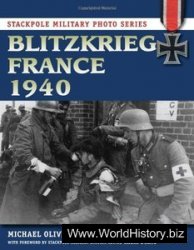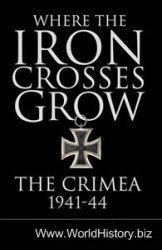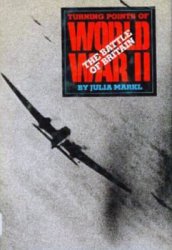The common soldier of the Civil War mostly enlisted early, in 1861 and 1862, and stayed to the end, if he lived. He was young, between the ages of 18 to 24. He was most likely to have been born in a rural area and to be the son of a farmer, but many were the sons of businessmen, working-class artisans, intellectuals, and the wealthy. He was white, Protestant, and literate. Indeed, Civil War soldiers were some of the best educated in the history of warfare, and their letters home attested to their ability to express themselves.
The common soldier was not only literate, he was politically astute and knew the reasons why he was fighting. The Northern soldier fought for union and, after 1863, for freedom. “I have no heart in this war if the slaves cannot be free,” declared a young Wisconsin private in 1863. The Southern soldier fought to protect his homeland from foreign invaders, for Confederate independence from tyranny, and for states’ rights. “We are fighting for the Constitution that our forefathers made,” wrote a Confederate soldier, “and not as old Abe would have it.” All claimed ideological inheritance from the American Revolution, and all agreed, one way or another, with President Abraham Lincoln when he said that slavery “was somehow the cause of the war.”
Johnny Reb and Billy Yank did not have a lot of money or property but had great ambitions for both. The common soldier was probably not married, although a fair number had already tied the knot. He eagerly accepted the monthly pay, the bonuses, and sometimes even the land that would come to him as part of his service, and rightly so, for these rewards were a part of the rich tradition of the American citizen-soldier. (Although by the second year of the war, the Southern soldier had little expectations of such rewards). He loved the excitement, the martial music, the parades, and the hoopla that accompanied the earliest calls for men. Often his motives for enlisting were mixed: peer pressure, social expectations, dreams of military glory, and patriotism all played a part in the final decision.
Most of all, the common soldier of the war reflected the deeply held values of individualism, family, community, church, and country in Victorian America. This was not, for the most part, a war fought by the poor for the rich. The families of the Civil War soldiers represented the very heart of the United States as it was in 1861. There were many men, however, who cannot be easily described within the broad depiction of the typical or common soldier. The Irish, German, Italians, and African Americans who served in the war were, in important ways, different from the majority of native-born white volunteers. Draftees, bounty jumpers, and the criminal element that were a part of the armies also departed dramatically from the norm.
Overall, American men shared romantic ideas about being a soldier. The concept of courage was the most important. Men were supposed to be brave in battle and, by doing so, would achieve their manhood, do their duty, and honor their God and their country. Courage was tied to a love of country, a feeling that is commonly called patriotism. The excitement of the early days of the war is reflected in a letter from a Northerner: “The air is full of calls for men who are patriotic to enlist. I really inwardly feel that I want to go do my part as a man.” A soldier from Iowa added: “The majority of our Citizens are full of patriotism and express their willingness to stand by the Old Stars and stripes and protect it from dishonor.” A Southern counterpart echoed the sentiment: “What is life worth under a government that cannot be enjoyed?”
Shared ideas and feelings created a powerful bond between the volunteer soldier in camp, on the march, and in battlefields and those who stayed back home. Hamlets, towns, and cities followed their “boys” throughout the war. Countless soldiers’ newsy letters were printed in hometown newspapers for all to read and comment on. Local and state loyalties were stronger than national, especially in the early days of war.
The Northern and Southern federal governments relied heavily on the common people, the middling classes, to support the war effort through men, supplies, and money. This was not a modern war with a well-oiled CONSCRIPTION system (the draft accounted for very few soldiers) or a huge propaganda machine. Both the initial enthusiasm and the later dissent for the war came from a grassroots perspective.
In one sense, the young man who served in the war never left home. He joined a local outfit, a company, and regiment that were made up of other young men that he knew well. It was common for brothers, cousins, even fathers and sons to enlist together. In the beginning, soldiers’ mothers, wives, sisters, and sweethearts provided UNIFORMS, food, and supplies and sewed the regimental flags. The enlisted men elected the company and regimental officers. The officers themselves, as untrained and innocent in the ways of war as the raw recruits, were only slightly older and better off than the men they were charged with training. When the war became hard and violent, the community suffered the losses together. Replacements would have to come from the same locality. Recruiting became much more difficult everywhere as the losses rose dramatically through the four years of war.
The reality of war hit the common soldier hard. After the initial excitement wore off, the untested farm boys, city clerks, students, and mechanics had to learn how to be soldiers. At first, the typical volunteer had a difficult time accepting the fact that soldiering was a job that required steady discipline, constant drill, and the mastery of skills like the quick loading and firing of a musket. A recruit in the 93rd Illinois summed up his frustrations when he wrote his parents about camp life in 1862: “They keep us very strict here, it is the most like a prison of any place I ever saw. . . . It comes rather hard at first to be deprived of liberty.” A rebel from Louisiana echoed that complaint when he commented from a camp in Alabama: “A soldier is not his own man. He has given up all claim on himself.”
The common soldier and his comrades learned through experience how to march quickly through heat and cold and rain and snow; how to eat the most unpleasant things under the most challenging conditions; how to go for long periods of time without sufficient food or water; and how to build fortifications at a moment’s notice. Most of all, he had to learn to kill his enemy and survive the war.
The biggest test was the first battle. Many have described the early Civil War military clashes as fights between two armed mobs. This was courage tested, and many failed at first. The noise, the smoke, and the fear of death were indescribable, and thousands “skeedad-dled” from the battlefield. Who could blame them? They were not professional soldiers; they were volunteers who expected the war to be an adventure that would be over in a few months. A soldier from Tennessee recalled his first time in battle: “I was not much surprised when we received the order to fall in. . . . I can never forget my thoughts as I stood there and looked around. . . . It was the first time I had ever been called upon to face death.” Courage for these men was just being able to follow orders and stay in line. “Oh how I wish I was a dwarf, just now, instead of a six-footer,” moaned a Mississippian who faced his initial combat experience at the bloody Battle of Shiloh. The best officers were the ones who respected these amateur soldiers and understood that most of the scared ones would come back to the camps chastened and ready to do better next time.
The average soldier became seasoned soon enough at Bull Run, Antietam, Chancellorsville, Shiloh, and Vicksburg. The majority of enlisted men and officers learned their jobs well, and some found they actually enjoyed it.
No longer did enthusiasm and a desire to achieve glory in battle drive the soldier. He had seen friends and perhaps a family member or two die horrible deaths in battle. Undoubtedly, he knew many more that died from illnesses like measles and dysentery.
As the war ground on, the soldier bonded with the other men in his company and regiment. He felt estranged from his family back home, and in many ways his fellow soldiers became his family, at least for the duration of the war. Surprisingly, despite the horrors of war, his devotion to his country’s cause remained relatively steadfast, although the idealism was replaced with a hard-edged practical side. Often he and his comrades reenlisted late in the war (Rebels by that time had no choice), and when his family protested that he had done enough for the cause, he told them he wanted to see the thing to the end. A young Michigan soldier provided his own common soldiers creed:
The soldier of ’61 was full of life and patriotism, his ardor undampened by hardship and adversity. The soldier of ’65 hoped less, but fought and accomplished more. The period of romance had changed to a period of system and endurance. . . . The history of these four years of war has its counterpart in our own lives. In our youth, we acted upon impulse regarding loss of consequences, now we think before we act.
Common soldiers became VETERANS after 1865. After the great conflict, some recalled their experiences with bitterness; most spoke of their service with pride. Individually, thousands published memoirs or contributed to printed regimental histories. Northern veterans, white and black, supported the Republican Party and joined the Grand Army of the Republic; Southern veterans supported the Democratic Party and joined the United Confederate Veterans. Most veterans, North and South, preferred to sentimentalize the war, and in their declining years emphasized the positive and patriotic aspects of their experiences. For them, Union soldier Oliver Wendell Holmes’s famous utterance was apt: “In our youth, our hearts were touched with fire.”
See also BOUNTY SYSTEM; brothers’ war.
Further reading: James M. McPherson, For Cause and Comrades: Why Men Fought in the Civil War (New York: Oxford University Press, 1997); Reid S. Mitchell, The Vacant Chair: The Northern Soldier Leaves Home (New York: Oxford University Press, 1993); Bell Irvin Wiley, The Life of Johnny Reb: The Common Soldier of the Confederacy (Baton Rouge: Louisiana State University Press, 1978); Bell Irvin Wiley, The Life of Billy Yank: The Common Soldier of the Union (Baton Rouge: Louisiana State University Press, 1978).




 World History
World History









